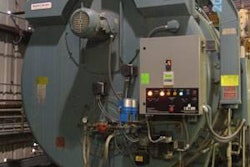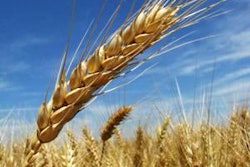The price of feed wheat, the most important component of pig feed in the UK, has risen by over £20 per metric ton since the beginning of June, presenting challenges for pig producers as their production costs rise, according to a report by the British Pig Executive.
At the start of June, UK wheat futures for July delivery came in at £171 per metric ton. By June 15, they were at £175 per metric ton, and by July 6 they stood at £204.25 per metric ton. These increases partly reflect the late harvest due to adverse weather conditions, which affects prices in the short term, according to the report. Of more significance, said the British Pig Executive, are the effects on prices in the long term. At the start of June, UK wheat futures for November delivery stood at £154.75 per metric ton. By July 6, however, that number had risen to £180.50 per metric ton.
Current estimates put UK pig production costs at nearly 173p per kilogram, a record number according to the report. Feed costs make up 109p per kilogram, just over 60 percent of that total. These numbers are expected to continue rising, said the British Pig Executive, with production costs remaining as high as 166p per kilogram post-harvest and unlikely to drop below 160p per kilogram in the foreseeable future.
The current average price paid for UK pigs is around 150p per kilogram, which means farmers are losing an average of 23p per kilogram — £18 per pig. Producers have been in a loss-making position since October 2010, according to the report, bringing cumulative losses to nearly £200 million.
If the industry continues this way, producers may be forced to leave the industry. The only way to offset increased production prices is to increase pig prices, which will put more pressure on the processing industry, according to the report. Availability of imports could decrease as feed prices rise in other parts of the EU.















